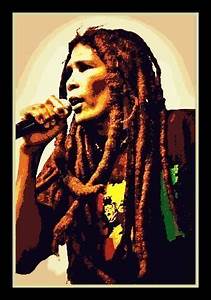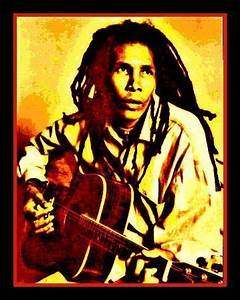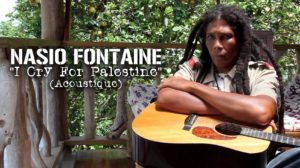Onumba.com —- When the late Hon. Bob Marley was crowned the king of reggae, everyone was in agreement. Why? Simple. Dude was an unrivaled reggae juggernaut.
After Marley’s death in 1981, Peter Tosh, another towering reggae colossus, was broadly viewed as next in queue for coronation. However, Tosh repeatedly expressed no interest in assuming the mantle of the reggae throne. Perhaps, being Marley’s arch rival, the Bush Doctor never really bowed to the Tough Gong and as a result wanted no part of any effort to crown him king. Me no wan Bob Marley’s crown, he once said, paraphrasing.
Regardless, Tosh was still touted in the community of reggae enthusiasts and writers as the best reggae artist in the post Marley era.
But since Tosh’s assassination in 1987, the reggae throne has remained unoccupied gathering dust and cobwebs. It is not particularly clear why. Perhaps, no one artist demonstrated clear-cut proof, as Marley and Tosh did, of being worthy to be crowned the undisputed reggae royalty, the operative word being “undisputed.”. The late Bunny Wailer, who along with Marley and Tosh established the iconic The Wailers, offered a fleeting possibility with flashes of brilliance here and there, and was a full-throated member of the Rastafarian faith, but he neither rose to an enduring international prominence nor achieved the same apex of success as his former band mates. In short, Bunny Wailer failed to break out of the pantheon of great artists that included Burning Spear, Culture led by the late Joseph Hill, Black Uhuru, Don Carlos and others.
Perhaps, now is the time to crown a reggae king. Isn’t it?
No doubt, opinions on this will run the gamut, but first, let us all get on the same page about what is considered reggae —- that way we are comparing apples and apples.
So —— what exactly is reggae?
This too will stoke up a fierce kerfuffle. For me, and more importantly, for the purposes of this exercise, I don’t really believe most dancehall songs, particularly the type known as ragga, fusion (reggae and rap) and the other excessively overhauled offshoots should be classified as reggae. Recently, a spin-off monikered reggaeton sprouted out of Puerto Rico —– knitting dancehall and hip-hop into a strikingly novel genre that further dilutes traditional roots, rock reggae. Some dancehalls are OK, but most of them are flat-out atrocious. In short, these god-awful sub-genres of reggae are not only annoyingly noisy and depressingly disorganized, they are also feckless and boring conduit through which conscious messages and words of wisdom are to be conveyed. Additionally, they lack smooth groove and clarity of words.
Before revealing the new reggae king, first the impact of reggae in Africa
Being a fierce and uncompromising aficionado of old school reggae, it has always been my posture to quit the whole reggae thing if roots rock reggae (traditional reggae) were to fizzle out. The truth is, I just don’t derive any satisfaction out of these crappy offshoots of reggae.
As an A-student of reggae music and a ferocious consumer of its nourishing servings since secondary school in Anambra and Imo States, Nigeria, I unreservedly credit reggae for planting and nourishing the seed of my Black consciousness, for molding the contours of my radical thoughts, for paving the path to knowledge of self, all of which helped tie my reality as a Black African to those of my African brothers and sisters abroad in places such as the Caribbean, the United States and Europe. Yep, it all started with reggae.
The impact of reggae, particularly that of Bob Nesta Marley, was both seismic and infectious. It was huge. For many us growing up in Nigeria, and other places in Africa for that matter, reggae music was our library, our teacher and our newspaper. Back then, we lacked the conventional resources to obtain knowledge concerning the menacing global Black struggle. No libraries, either. The availability of books to read was a colossal pittance. Teachers at that time, both at the secondary school and university level, largely swam in the same deep well of ignorance and showed not even a dram of interest in that kind of stuff.
The sickening paucity of relevant knowledge about African history and not being sufficiently educated in school about the global Black struggle left many of us dangling empty-headed about ourselves and Africans abroad. Reggae music played a monumental role in changing much of that. Devoid of that knowledge, the fundamental mindset of the average Nigerian ——— then, now as well ——– is for the most part hand tossed and baked in the smoldering oven of colonial indoctrination. That is precisely why a concourse of Africans are hopelessly misguided believing that Jesus Christ was Caucasian ——– a White man. It also accounts for why our women (increasingly men too) are depressingly hooked on the juvenile, foolish and unhinged practice of skin bleaching, believing their black skin is inferior and therefore unattractive.
So while the colonial curriculum taught us everything about Christopher Columbus, Vasco Dagama, Henry Morgan, Maco Polo and the other touted and glorified pirates, it left out Black folks like Paul Bogul, Leonard Howell, W.E.B DuBois and others. Many of us knew next to nothing about African-Americans ———- not much about Marcus Garvey and never even heard of Malcolm X. Many Africans, both those in Africa and those residing now in the United States, still have never heard of Malcolm X. They don’t read ——- and don’t give a flying flamingo about what anybody thinks, either. In short, we were mind-mindbogglingly, almost irredeemably ignorant. Depressingly, many of us still are. One African woman from Cameroon once told me she was here only to make money and that all she cared about was being able to “eat and sleep.” Fair enough, but then, considering that this was after a short conversation during which she exposed her ignorance not knowing who Martin Luther King was, underscores the problem.
And if you you don’t believe me, perhaps popular Nigerian author Chimamanda Adichie’s thoughts will convince you: “I went to America very ignorant. I thought Black Americans lived like the Cosby Show.”
Last year, African development gadfly Ghanaian native Wode Maya, organized a forum on his Youtube platform addressing the “Gap between Africans and African-Africans.” Mr. E.B. Baffour, a Ghanaian-born resident of the United States, was one of the participants. He spoke eloquently about these issues, admitting, “I had no idea about African-Americans. I had no idea what our brothers and sisters went through during slavery. I was totally ignorant.”
Wode Maya himself owned up to his own sprawling obtuseness. “I didn’t even know there was someone out there called African-American,” he said. “I didn’t know until I went to China, because we were not taught in school.”
Maya continued: “So many of us don’t even know that we have brothers and sisters living in the diaspora.”
We do.
Collectively, Mr. Baffour, Mr. Maya and Ms. Adichie epitomized our staggering depth of ignorance. Sadly, a sprawling legion of Africans are still bedeviled by the same entrenched ignorance. But for many of us, reggae music emanating largely out of the tiny island of Jamaica dispensed the remedial antibiotic inoculation for this chronic African malady.
The brilliant and thought-provoking lyrics of reggae behemoths such as Bob Marley, Peter Tosh, Burning Spear, Joseph Hill, toast master U-Roy, Max Romeo and others opened my eyes to the global nature of Black struggle and where Africans fit in it. The work and legacy of pan-African luminaries such as Nnamdi Azikiwe, Kwame Nhrumah, Patrice Lumumba, Jomo Kenyatta, Amilcar Cabral and others were widely taught in schools ——– that too helped immensely But nicely complementing the legendary work of these iconic founding fathers was reggae music which offered the giant megaphone through which these boffo reggae teachers spoke to us ——— bringing the world closer and effectively revealing the once cloaked inter-connectedness of the global black fight for equality, justice and respect with motherland Africa anchored as the rallying cry.
All of that was to get to this: When I say reggae, I mean roots, rock, conscious reggae. No more, no less.
So, who is the king of reggae today?
After winnowing through the impressive roster of active reggae mastodonts, Nasio Fontaine and Morgan Heritage stood out from the rest as the best. Neither record sales nor revenue of any kind was a factor in determining the king. Only the quality of their work was considered. In the end, Nasio slightly came out on top largely because his work output and vibe are notably more impressive than that of any other artist in the game today. PERIOD.
Morgan Heritage is a splendorous reggae Tour de Force as well, having racked up accolades for its Magnus Opus over the years. I love them too. One of my favorite songs by Morgan Heritage is ‘A man is still a man.’ That’s a bad ass reggae tune.
Nasio Fontaine, though, is truly the real deal. Taken together, dude does not make bad songs, assessed from the standpoint of beat, lyrics, harmony and overall reggae groove. Donning the looks of a dreadlock rastaman, and relentlessly preaching the core spiritual touchstones of the Rastafarian faith, Nasio is an amazing conscious reggae colossus loaded with talent and intelligence. The 51 year old Nasio is the closest thing to Bob Marley, that is not to say however, that singing like Bob Marley is a factor that helps determine greatness in this game.
Why Nasio is not yet a household name across the globe beats the crap out of me.
The great Nasio Fontaine from the Commonwealth of Dominica is the reigning king of reggae. Yeah —– let me be the first to say it emphatically.
Well, I am not really the first. This guy on Youtube beat me to it, writing approvingly of Nasio ——— “Nasio is Number One…Numero un…Numero Uno.”
“You are the best living reggae musician,” another admirer noted.
While I have your attention: The idiots who killed Lucky Dube, and the morons who assassinated Peter Tosh, should rot in the deepest, darkest corner of hell.






